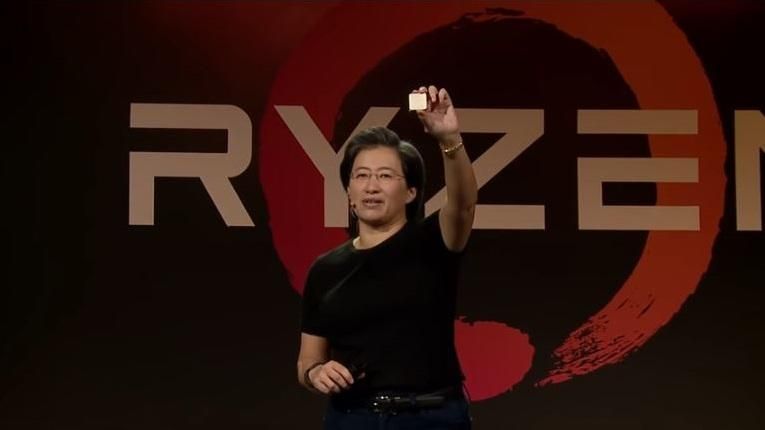Why the new Ryzen chips will benefit AMD and Intel users
AMD failed to break Intel's dominant position in the CPU market during the past decade, but the company's new Ryzen processors should shake things up — and that's a good thing for consumers.

We're anxious to get our hands on the new Ryzen lineup of CPUs, but from what we've learned from AMD's official announcement and demo workstations, the company seems to have an ace card of an architecture. Intel has some powerful and efficient desktop CPUs, there's no questioning that. But the prices are steep for many of them, and innovation has become stagnant with only minor improvements made with each new generation of processor.
Ryzen is looking to shake things up, and we've only seen AMD's high-end and more-expensive options thus far. Take the new Ryzen 7 1800X, for example. The company puts this CPU up against the Intel Core i7-6900K, which sets you back around $1,000. Performance is on the side of AMD in tests between the two CPUs, but what's incredible is the new Ryzen processor costs around half of that Intel CPU. And that's substantial savings for the consumer.
It's also interesting how AMD is naming its new chips, opting for a similar naming convention as Intel's Core family. Ryzen 3 will be the entry-level solutions, Ryzen 5 for mainstream applications, and Ryzen 7 for those who require the absolute best in terms of performance. Having such competition should kick Intel into higher gear with marketing and development, which in turn should result in lowered pricing for current and new processors, as well as new innovations down the line.
With Ryzen, AMD looks to level the playing field
AMD isn't only targeting desktops and laptops, but also smaller form-factor systems. If you're on AMD's #TeamRed, or are merely looking for the best performance for your buck, the company is certainly opening up the floodgates to offer competitive alternatives to the status quo. There's still more to come from AMD too. We've yet to see anything from the Ryzen 3 and 5 product lines, which will make things even more interesting considering the Core i5 line of processors is a popular choice for gamers and system builders.
With the FX line of processors, AMD was unable to tackle Intel to the ground with solid performance per watt, so the company had to increase the number of cores, clock speeds, and power draw. Remember all the jokes surrounding AMD's chips and how you could turn off your heating in the winter and fire up your FX-powered desktop? They weren't entirely fictional. AMD's processors got hot, and they weren't the fastest CPUs when it came to single-core performance.
Here's what we have seen so far with Ryzen:
- $499 - Ryzen 7 1800X at 3.6 GHz, up to 4.0 GHz.
- $399 - Ryzen 7 1700X at 3.4 GHz, up to 3.8 GHz.
- $329 - Ryzen 7 1700 at 3.0 GHz, up to 3.7 GHz.
Where to order AMD Ryzen 7 CPUs
Get the Windows Central Newsletter
All the latest news, reviews, and guides for Windows and Xbox diehards.
That's AMD's high-end lineup, so you can bet that the company's Ryzen 3 and Ryzen 5 families will be even more competitively priced. For Intel fans and those who prefer to their processors, this new breath of life in AMD will cause Intel to rethink its current CPU strategy. We'll have to see whether or not prices come down for current and future generation chips, but it would be a smart move for Intel to address AMD's more aggressive pricing structure.
I'm not trying to bash Intel for sitting around doing nothing, because the company hasn't needed to do much to stay ahead of AMD. Regardless of which camp you happen to be in, processor competition is good for everyone.
What do you think of Ryzen so far. Will you switch to (or back from) Intel to try out AMD's new platform?

Rich Edmonds was formerly a Senior Editor of PC hardware at Windows Central, covering everything related to PC components and NAS. He's been involved in technology for more than a decade and knows a thing or two about the magic inside a PC chassis. You can follow him on Twitter at @RichEdmonds.